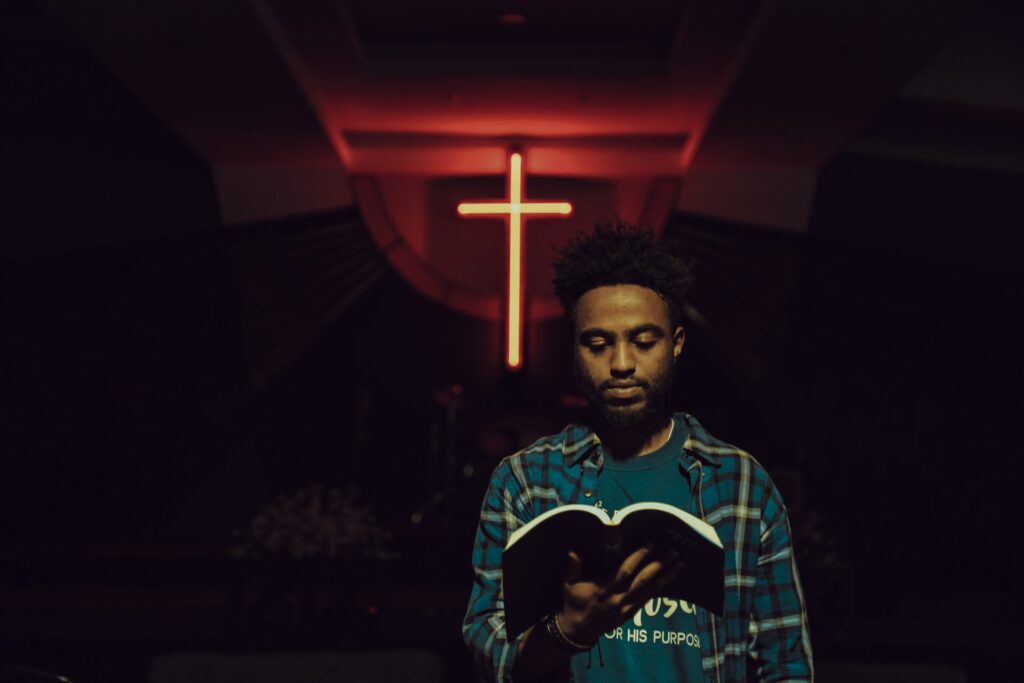All Kinds of Prayer
The Apostle Paul on Prayer
Some people stand out in the biblical record. In the old covenant, David seems first among worshipers, Moses as leader and lawgiver, Joshua as general, and Isaiah as wordsmith. In the new covenant, Paul stands out for many reasons. Not the least of these is prayer. Sometimes we get so caught up in trying get our minds around what Paul wrote and the missionary/pastoral example he set for us, it is easy to look past the simple, single factor of his life that made him a great man–the life of prayer.
Moses as leader and lawgiver, Joshua as general, and Isaiah as wordsmith. In the new covenant, Paul stands out for many reasons. Not the least of these is prayer. Sometimes we get so caught up in trying get our minds around what Paul wrote and the missionary/pastoral example he set for us, it is easy to look past the simple, single factor of his life that made him a great man–the life of prayer.
Paul’s Expansive Understanding of Prayer
The apostle Paul’s writings are full of references to prayer. His instructions to the Ephesians are an excellent starting point. “And pray in the Spirit on all occasions with all kinds of prayers and requests. With this in mind, be alert and always keep on praying for all the saints” (Ephesians 6:18, NIV). The commentaries give insight on what Paul meant by “all kinds of prayers”:
With all–i.e., every kind of; implying the earnestness of one leaving nothing untried. Prayer, [proseuchees]–a sacred term for prayer in general. Supplication, [deeseoos]–a common term for one kind of prayer (Harless); an imploring request. “Prayer” for obtaining blessings, “supplication” for averting evil (Grotius). In the Spirit–joined with “praying.” It is He in us, as the Spirit of adoption. . . .[1]
 We must pray with all prayer and supplication, with all kinds of prayer: public, private, and secret, social and solitary, solemn and sudden; with all the parts of prayer: confession of sin, petition for mercy, and thanksgivings for favours received.[2]
We must pray with all prayer and supplication, with all kinds of prayer: public, private, and secret, social and solitary, solemn and sudden; with all the parts of prayer: confession of sin, petition for mercy, and thanksgivings for favours received.[2]
These commentaries reflect the broad nature of Paul’s first century prayer paradigm. As stated above, prayer is many things: confession of sin, petition for mercy, and thanksgivings. At least three times, he differentiates between prayers in general and prayers of petition. Paul says “prayers and requests” in Ephesians 6. He writes “in everything, by prayer and petition, with thanksgiving, present your requests to God” in Philippians 4:6. In 1Timothy 2:1, he insists that “requests, prayers, intercession and thanksgiving be made for everyone.” These passages indicate that in Paul’s teachings, prayer is much more than asking God for things. Three words used in 1Timothy 2:1 and Philippians 4:4, (1) “prayers,” (2) “supplication,” and (3) “giving of thanks” help us expand our definition of prayer beyond petition. According to Strong’s Concordance, the meanings are: (1) proseuche means “prayer (worship); by implication, an oratory”; (2) deesis means “a petition: . . . request, supplication”; and (3) eucharistia which means “gratitude; actively, grateful language (to God, as an act of worship).” [3] Paul’s exhortation to the saints of the first century to pray included implicit instructions for their prayers to include worship (proseuch), petition (deesis) and thanksgiving (eucharistia).
To understand Paul’s theology of prayer, we must place it within the larger context of his theology of the church and the new covenant itself. Gordon Fee says this about Paul’s theology, “One of the primary issues in Pauline theology is continuity and discontinuity between the old covenant and the new.”[4] Thus we find in Paul an excellent guide to help us see how new covenant prayer grew out of the old covenant prayer. Paul’s view of the church is central. According to Fee, the apostle sees the church as existing “between the times” of the Lord’s first and second comings. He calls this the “already but not yet” character of Christian living. God’s people are citizens of the future kingdom of God living in the present world. We are saved and we are being saved. We have the Spirit’s power housed within the earthen vessels of our human weakness. We live in what Fee calls the “dynamic center,” balanced between our weakness (not in the sense of harboring secret or besetting sins, but in the sense that we are fallen human beings who are being conformed to the image of Christ) and the unlimited power of the Holy Spirit.
“between the times” of the Lord’s first and second comings. He calls this the “already but not yet” character of Christian living. God’s people are citizens of the future kingdom of God living in the present world. We are saved and we are being saved. We have the Spirit’s power housed within the earthen vessels of our human weakness. We live in what Fee calls the “dynamic center,” balanced between our weakness (not in the sense of harboring secret or besetting sins, but in the sense that we are fallen human beings who are being conformed to the image of Christ) and the unlimited power of the Holy Spirit.
This eschatological view of the church sheds light on the spirituality of the new covenant. How is it like the old covenant? New covenant prayer is rooted in Scripture, is heartfelt, and springs from faith in God. How is it different? New covenant prayer flows from a Calvary-cleansed heart and is empowered by the abiding Holy Spirit. In these details of continuity and discontinuity, Paul sees the ministry of the Holy Spirit as the essential and empowering element of church life and ministry. Therefore, these two things: the urgency of the end times and the power of the Spirit, shape the theology and the prayers of Paul.[5] This exhortation to the Romans, filled with already/but not yet perspectives, expresses Paul’s paradigm, “Be joyful in hope, patient in affliction, faithful in prayer” (Romans 12:12). Joyous hope of the promised future empowers faithfulness in prayer each day.
Prayer as Part of the Spirituality of Paul’s Discipleship Plan
Paul’s heart for the church is seen in his beautiful prayer for the Ephesian believers. “I have not stopped giving thanks for you, remembering you in my prayers. I keep asking that the God of our Lord Jesus Christ, the glorious Father, may give you the Spirit of wisdom and revelation, so that you may know him better” (Ephesians 1:15-17). “The Spirit of wisdom” is a reference to the Holy Spirit, who is at work in our  hearts when we pray. His prayer is replete with references to the power of the Spirit in the lives of believers. In his letters, Paul prescribes for everyone an unceasing devotion to prayer as the means for a continual flow of the transforming power of the Spirit of God. Our perspective is transformed: “Devote yourselves to prayer, being watchful and thankful” (Colossians 4:2). Our personalities are transformed: “I want men everywhere to lift up holy hands in prayer, without anger or disputing” (1Timothy 2:8). Our wills are conformed to God’s will: “Be joyful always; pray continually; give thanks in all circumstances, for this is God’s will for you in Christ Jesus” (1Thessalonians 5:16-18).
hearts when we pray. His prayer is replete with references to the power of the Spirit in the lives of believers. In his letters, Paul prescribes for everyone an unceasing devotion to prayer as the means for a continual flow of the transforming power of the Spirit of God. Our perspective is transformed: “Devote yourselves to prayer, being watchful and thankful” (Colossians 4:2). Our personalities are transformed: “I want men everywhere to lift up holy hands in prayer, without anger or disputing” (1Timothy 2:8). Our wills are conformed to God’s will: “Be joyful always; pray continually; give thanks in all circumstances, for this is God’s will for you in Christ Jesus” (1Thessalonians 5:16-18).
Paul also taught and modeled prayer. Again, Gordon Fee:
His life was devoted to prayer; and his relationship with his converts was primarily sustained by way of thanksgiving and prayer. Paul did not simply believe in prayer or talk about prayer. He prayed, regularly and continuously, and urged the same on his churches (1 Thes. 5:16-18). Although this undoubtedly was a carryover from his life before Christ, what we need to note here is that for Paul prayer has been radically transformed by the coming of the Spirit.[6]
Paul prayed the way he had always prayed, the way he had learned to pray as a faithful Jew, except that now he prayed from a forgiven heart to his forgiving Father in the name of his atoning Lord and by the power of the indwelling Holy Spirit.
 If we could interview the apostle today asking the same questions every interviewer might ask, how would he answer?
If we could interview the apostle today asking the same questions every interviewer might ask, how would he answer?
Interviewer: Paul, could you tell us the secret of your success? Is it your education? Your Eloquence? Your political savvy? What words of advice would you give today’s pastors and all the people of God?
Paul: When I came to you, brothers, I did not come with eloquence or superior wisdom as I proclaimed to you the testimony about God. For I resolved to know nothing while I was with you except Jesus Christ and him crucified. I came to you in weakness and fear, and with much trembling. My message and my preaching were not with wise and persuasive words, but with a demonstration of the Spirit’s power, so that your faith might not rest on men’s wisdom, but on God’s power (1 Corinthians 2:1-5).
Conclusion
Dr. Steve Phifer received a Doctorate in Worship Studies from the Robert E. Webber Institute for Worship Studies. He has taught at Valley Forge University and Southeastern Assemblies of God University. For many years he was the Worship Pastor at Word of Life Church in Alexandria, VA.
More of Dr. Phifer’s materials can be found at stevephifer.com.
